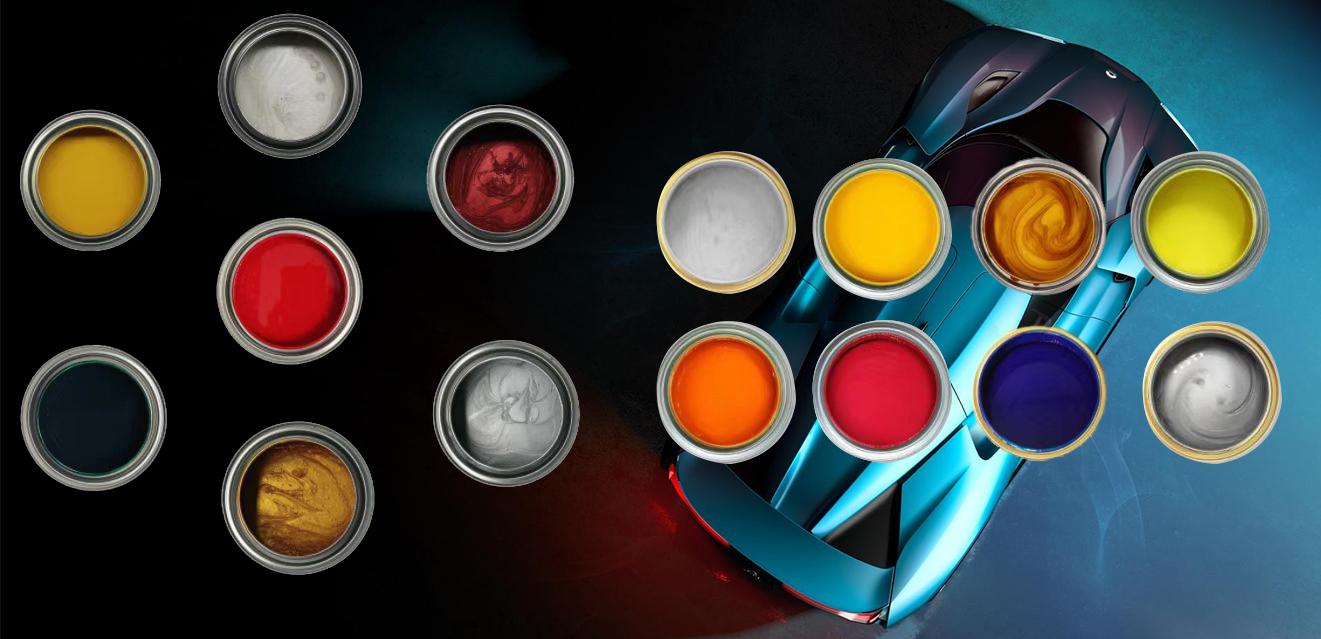Auto refinish paint process

Car paint repair process, car paint repair process:
Preparation before maintenance
1. Remove workpieces that affect sheet metal and coatings;
2. Brush the car clean, and formulate the touch-up paint process and operation guide according to the coating situation and user requirements
3. The sheet metal is flat, and the unevenness of the repaired surface is eliminated as much as possible.
4. Cover unpainted surfaces and door and window glass with tape and paper or a protective cover.
Two: The processing flow before the repair
1. Scrape (remove) the old paint layer from the repaired surface to partially expose the bottom metal or "blank", use sanding or paint stripper
2. Wipe or vacuum the surface to remove dirt and fingerprints
3. Wipe with a cloth dampened with solvent to remove oil stains and fingerprints.
4. In demanding occasions, spray a thin layer of phosphating primer.
Three, primer layer (including scraping putty leveling) process
1. Brush or spray the self-drying synthetic resin primer.
2. Self-drying, forced drying at 60°C or infrared irradiation.
3. Scrape putty on sheet metal correction parts and concave paint surfaces (the number of putty scraping depends on the unevenness of the surface)
4. Self-drying, forced drying at 60°C or infrared irradiation.
5. Use dry grinding or wet grinding, scrape the putty surface by hand, and wet grind the surface of the whole vehicle.
6. Blow dry or wipe away moisture
4. Spray paint layer
1. Remove oil and dust with a solvent-gas-soaked cloth and a sticky cloth.
2. Apply an intermediate coat
3. Self-drying or forced drying or infrared radiation drying at 60℃
4. Scrape the putty locally to eliminate the sand holes and sandpaper particles of the putty.
5. After the putty layer is dry, wet sand the entire surface with 360#~400# waterproof sandpaper.
Five, coating process
1. Cover and protect surfaces that do not need a topcoat with tape or paper
2. Wipe with a rag or sticky cloth dipped in solvent gasoline
3. Spray paint
4. Self-drying or forced drying at 60 °C, and local repair is dried by infrared irradiation.
6. Final revision process
 1. Prohibit the use of protective paper or tape
1. Prohibit the use of protective paper or tape
2. Check the spraying quality and mark spraying defects.
3. Use grinding, polishing and other methods to modify, eliminate defects, and eliminate fake smoke from local spraying.
4. Install the part of the workpiece removed before repair.
5. Clean the interior surfaces and tires of the car.
Auto repair:
1. Full frame after "whitening",
2. Refurbishment of topcoat
Local Repair:
1. From bottom to top,
2. Local transformation
The above construction process is a car repair process that is fully painted from the bottom to the surface and "whitened". Other local transformation process, increase or decrease process, can be determined according to on-site experience.
The number of putty scrapes depends on the unevenness of the coating surface and the type of putty used, as well as the operator's craftsmanship and proficiency.
In short, more putty scraping will directly affect the quality of the repair paint layer, so it is better to use less putty.